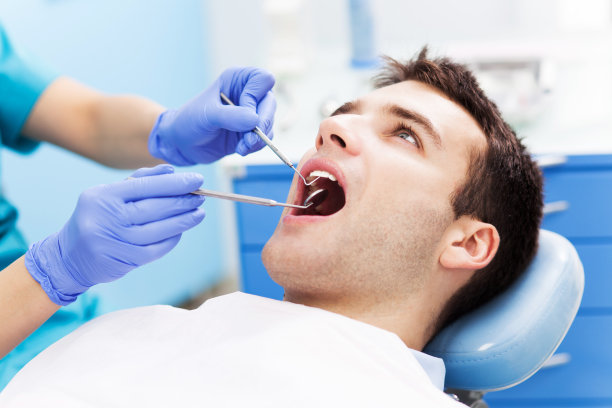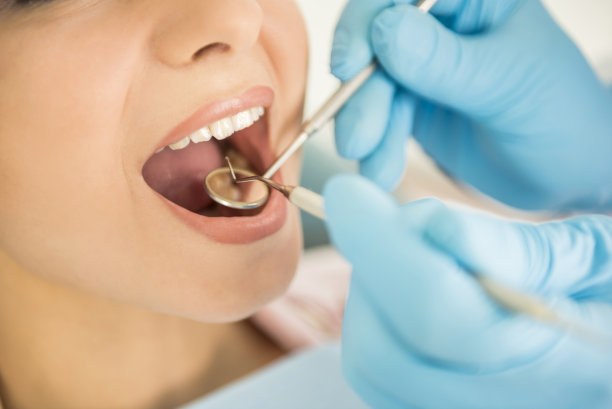Summary: Extracting a tooth, while sometimes necessary for optimal dental health, requires proper techniques and diligent aftercare to ensure a smooth recovery and prevent complications. This article explores the critical aspects of tooth extraction, emphasizing the importance of skilled dental professionals, careful procedural techniques, appropriate aftercare practices, and the significance of monitoring post-extraction recovery. By understanding these components, patients can pursue better dental health and mitigate risks associated with tooth removal. Proper techniques not only aid in the immediate process but also drastically influence long-term outcomes. Hence, this article serves as a comprehensive guide for those undergoing tooth extraction to maximize their dental health.
1. Importance of Skilled Dental Professionals

The first step in ensuring a successful tooth extraction lies with the dental professionals performing the procedure. Skilled dentists or oral surgeons are trained to assess the dental issue accurately and determine the necessity of extraction. Their expertise is crucial not only in the assessment but also in deciding the best approach for extraction, considering the patient’s unique dental condition.
Moreover, experienced professionals are adept at managing anxiety and discomfort often associated with dental procedures. They ensure that appropriate anesthesia is administered, which is vital for a pain-free experience during the extraction. This level of comfort can significantly affect the patient’s perception of the procedure and their overall experience.
A well-practiced team will also have the necessary tools and protocols in place to address any complications that may arise during the extraction process. Their ability to respond quickly and effectively can mean the difference between a smooth recovery and post-procedure complications.
2. Effective Techniques for Tooth Extraction
The technique used during extraction plays a vital role in the procedures outcome. Traditional methods versus modern techniques such as minimally invasive surgery can significantly impact recovery times and post-operative effects. Dentists must choose the method that best fits the extraction type and the patients overall dental health.
Additionally, proper techniques involve careful manipulation of surrounding tissues to minimize trauma. By employing gentle techniques, dentists can help reduce bleeding, swelling, and pain experienced by patients following the extraction. These factors are vital in ensuring a seamless recovery process.
Ensuring that a tooth is entirely removed, including any roots, is also crucial. Incomplete extractions can cause complications such as infections and prolonged pain. Thus, comprehensive understanding and application of extraction techniques are paramount for optimal dental health.
3. Adhering to Aftercare Guidelines
Aftercare begins immediately after the extraction and can significantly influence healing. Patients should follow the dentists specific aftercare instructions, including controlling bleeding and managing pain with prescribed medications. Failure to adhere to these guidelines can result in complications such as dry socket or infections.
Patients should also maintain a soft-food diet for the initial healing period to prevent irritation at the extraction site. Avoiding certain substances such as alcohol or tobacco is necessary, as they can interfere with the healing process. Education on what foods to consume and what to avoid can significantly enhance recovery.
Furthermore, regular follow-up appointments are essential. These visits allow the dental professional to evaluate healing and identify any potential issues early on, ensuring that the extraction site is healing properly and that the patient’s dental health is maintained.
4. Monitoring Recovery for Long-Term Health
The recovery phase extends beyond immediate aftercare and plays a crucial role in long-term dental health. Patients should be aware of any signs that may indicate complications, such as prolonged pain, swelling, or fever. Recognizing these symptoms early can lead to timely intervention and prevent more serious health issues.
Additionally, maintaining oral hygiene in the recovery period is vital to prevent infections. Gently rinsing with salt water can help keep the extraction site clean without disturbing the healing tissue. This mindfulness towards oral care can set a precedent for improved dental health moving forward.
Lastly, regular check-ups after recovery can support ongoing dental health. Dentists can provide guidance on best practices post-extraction, ensuring that patients adopt habits that contribute positively to their overall dental well-being.
Summary:
In summary, the importance of proper techniques and aftercare when extracting a tooth cannot be overstated. Skilled professionals, effective extraction methods, and diligent aftercare all contribute to a successful procedure and satisfactory recovery. Patients are encouraged to remain proactive about their oral health, seeking regular evaluations and adhering to post-operative care instructions to ensure optimal outcomes.
This article is compiled by Vickong Dental and the content is for reference only.
Vickong Dental
Vickong Dental is a large medical group established in Hong Kong in 2008 by professors from well-known medical universities in Guangdong and Hong Kong, as well as medical doctors from key national '985' universities (including Master's supervisors and senior professors). The chain of branches brings together expert dentists with PhDs and Master's degrees from Hong Kong and Mainland China, committed to providing high-quality dental treatment.
"Vickong Dental Practices the University Motto of 'Healing and Serving Society,' with a Stable Operation for Sixteen Years. It Has Been honored with Hong Kong Enterprise Leaders's Choice,' and is a Global Trusted Implant Center for the Nobel Implant System. Recommended by Hong Kong Metro Broadcast and Guangdong Television, it Serves Customers from Over Thirty Countries and Regions, Gaining the Trust and Favor of Citizens from the Guangdong-Hong Kong-Macau Greater Bay Area and Surrounding Cities.

Thousands of customers' unanimous praise
The most recognized and highly recommended dental service by customers in the Guangdong-Hong Kong-Macau Greater Bay Area
We Ensure You Receive Detailed Care and Attention Here
Hong Kong standards, Shenzhen prices, Your Trusted English-speaking dentists

Vickong Dental Medical-Grade Instrument Disinfection Process
Vickong Dental Medical-Grade Instrument Disinfection Process

Vickong Dental Chain: A Warm and Comfortable Environment for Treatment






Appointment Hours

Q&A
Why choose Vickong Dental?
Vickong Dental practices the university motto 「Medicine to Benefit Society」, with each branch bringing together highly qualified dentists with doctoral and master’s degrees from Hong Kong and the Mainland, and has maintained seventeen years of steady operation。Recipient of 「2024 Hong Kong Enterprise Leaders Brand」, 「2025 Hong Kong Enterprise Leaders Brand」, a Nobel Biocare Global Trusted Implant Center, and a brand recommended by Metro Radio Hong Kong and Guangdong TV。
To date, we have served customers from more than thirty countries and regions,earning exceptionally high word-of-mouth recognition and trusted recommendations from residents across the Guangdong-Hong Kong-Macao Greater Bay Area and surrounding cities
We have eight major branches in Zhuhai、Shenzhen,and a consultation and service assurance center in Hong Kong,so you can book a free consultation at any time for any questions,which is very reassuring.
If I do not accept the quotation after the CT scan, will I be charged??
No! As long as the actual treatment has not started, you will not be charged any fees.
Will there be any additional charges during the treatment process?
No, there won’t be any additional charges. Before treatment begins, we will clearly explain the treatment plan and its corresponding fees. Only after the patient agrees and signs the consent form will we proceed with the dental service.
Can I pay in Hong Kong dollars?
Yes. Vickong Dental accepts payment in Hong Kong dollars. The amount will be converted based on the exchange rate of the day, and the applicable rate will be clearly communicated to you in advance.
Can I reschedule my appointment at any time?
Yes. Please contact us via **WeChat** or **WhatsApp** as early as possible, providing your original appointment time and details, along with your preferred new date and time slot for rescheduling.













